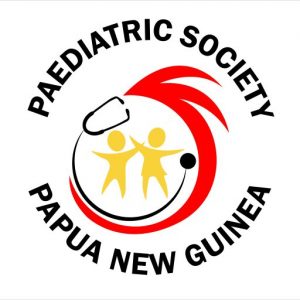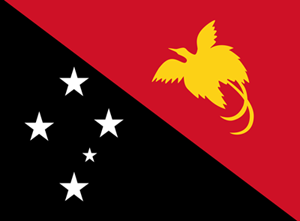Breast feeding and good nutrition help your child survive, grow and be healthy
Malnutrition is very common in PNG. Many mothers have difficulty fully breast feeding her baby for sufficient time, and mothers often have no support for breast-feeding. Many infants are weaned early, or they do not receive adequate types or amounts of food.
For the first 4-6 months of life the only nutrition a baby needs is breast milk. Breast milk has all the nutrition a baby needs, and protects against severe diseases that kill children, particularly diarrhoea and pneumonia.
“Exclusive” breast-feeding is the best way to feed young infants. “Exclusive” means that he baby takes only breast milk and no additional food or fluids (including no water) for at least the first 4-6 months of life. The only exceptions are medicines if a baby needs these. Babies older than 6 months should continue to be breast fed, but “complimentary” feeds can be started.
Babies who are exclusively breast fed for at least the first 4-6 months of life are less likely to become unwell than babies who are fed solids or soft feeds too early. In PNG nearly all mothers breast-feed their babies, but many mothers start giving additional food, such as soft banana, pumpkin etc, very early, before the baby is 4 months old. This can lead to illnesses including pneumonia.
Exclusive breast feeding gives the best chances of good growth and development. The introduction of other food and fluid should be delayed until the baby is 4-6 months of age.
Baby bottles (or other bottle) or baby cups with a spout puts babies at risk of diarrhoea, malnutrition and death. This is because it is very hard to keep teats and bottles clean. They become contaminated with germs that cause diarrhoea. Many mothers who use bottles cannot afford infant formula so they give powdered cow’s milk, or dilute the formula with too much water to make the tin of milk powder last longer. This will cause the baby to have too few calories. Diarrhoea from dirty bottles and low calorie intake are common causes of severe malnutrition and death in bottle fed babies. Cow’s milk also causes anaemia, a serious problem of the blood.
Babies need to be weighed regularly to check growth. If a mother takes her baby to a health centre 7 times in the first year of life (birth, 1, 2, 3, 6, 9 and 12 months) the baby can be weighed and receive all the necessary vaccines. Starting at 6 months of age children also need a dose vitamin A every 6 months, which you can receive from your health clinic.
If mothers are having difficulty with breast feeding they should seek assistance from midwives, nurses at health centres or the Susu Mamas (http://www.susumamas.org.pg), or toll free number 7200 6262.
From 6 months babies need healthy weaning foods, and all children need a balanced diet. Dr Al Maha from Nonga General Hospital has developed a healthy plate.
This is based on the Pasifika Plates program, run by the Pacific Community (SPC) Public Health Division. This program has a wonderful recipe book with over 40 recipes on healthy, nutritious food.

